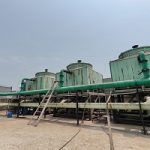Abstract of Talk: Industrial Engineering
Industrial engineering is an engineering profession that is concerned with the optimization of complex processes, systems or organizations by developing, improving and implementing integrated systems of people, money, knowledge, information, equipment, energy and materials.
Date and Time
Venue
Target Audience
Speaker Profile
Department
5th October, 2019 at 11:00 a.m.
Conclave 1
Mechanical Engineering Students
Dr. Balkrishna Eknath Narkhede
NITIE-National Institute of Industrial Engineering Mumbai
https://scholar.google.co.in/citations?user=uJIJgmEAAAAJ&hl=en
Mechanical Engineering
Industrial engineers use specialized knowledge and skills in the mathematical, physical and social sciences, together with the principles and methods of engineering analysis and design, to specify, predict, and evaluate the results obtained from systems and processes. From these results, they are able to create new systems, processes or situations for the useful coordination of labour, materials and machines and also improve the quality and productivity of systems, physical or social. Depending on the sub-specialties involved, industrial engineering may also overlap with, operations research, systems engineering, manufacturing engineering, production engineering, supply chain engineering, management science, management engineering, financial engineering, ergonomics or human factors engineering, safety engineering, or others, depending on the viewpoint or motives of the user.
Recent Developments in Industrial Engineering:
With the improvement in the economic scenario, there have been various investments in various sectors of the economy. The M&A activity in India increased 53.3 per cent to US$ 77.6 billion in 2017 while private equity (PE) deals reached US$ 24.4 billion. Some of the important recent developments in Indian economy are as follows:
- Exports from India increased 4.32 per cent year-on-year to US$ 92.33 billion in April-May 2019.
- Nikkei India Manufacturing Purchasing Managers’ Index (PMI) stood at 51.40 in July 2019, showing expansion in the sector.
- Mergers and Acquisitions (M&A) activity in the country has reached US$ 41.6 billion in first half of 2019 (Jan-June).
- Income tax collection in the country reached Rs 2.50 lakh crore (US$ 35.88 billion) between April-November 2018.
- In the first six months of 2019, eight companies held IPOs, raising as much as Rs 5,509 crore (US$ 0.79 billion).
- India’s Foreign Direct Investment (FDI) equity inflows reached US$ 436.47 billion between April 2000 and June 2019, with maximum contribution from services, computer software and hardware, telecommunications, construction, trading and automobiles.
- India’s Index of Industrial Production (IIP) rose 2 per cent year-on-year June 2019.
- Consumer Price Index (CPI) inflation rose moderated to 3.15 per cent in July 2019 from 3.18 per cent in June 2019.
- Around 10.8 million jobs were created in India in 2017.
- India has improved its ranking in the World Bank’s Doing Business Report by 23 spots over its 2017 ranking and is ranked 77 among 190 countries in 2019 edition of the report.
- India is expected to have 100,000 startups by 2025, which will create employment for 3.25 million people and US$ 500 billion in value, as per Mr. T V Mohan Das Pai, Chairman, Manipal Global Education.
- The World Bank has stated that private investments in India is expected to grow by 8.8 per cent in FY 2018-19 to overtake private consumption growth of 7.4 per cent, and thereby drive the growth in India’s gross domestic product (GDP) in FY 2018-19.
- India is expected to retain its position as the world’s leading recipient of remittances in 2018, with total remittances touching US$ 80 billion, according to Word Bank’s Migration and Development Brief.







